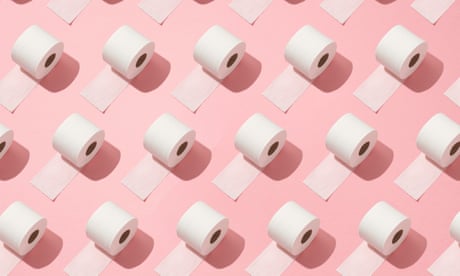
In the bathrooms of the ecologically conscious, bamboo toilet paper is the new bottom line – a supposedly green alternative to the bog-standard pulp-based loo roll that requires the chopping down of 1m trees a year, just to be flushed down the pan.
But findings from consumer watchdog Which? will wipe away that smug feeling: samples of three out of the five of the UK’s top bamboo brands were actually made from other woods, some of them heavily implicated in deforestation.
In the worst case, only 2.7% of the fibre in the loo paper came from bamboo. Other woods found in the products included acacia, a species associated with deforestation in Indonesia, and eucalyptus, another fast-growing tropical hardwood species.
Which? commissioned a “loodunnit?” analysis of the top five eco loo roll brands claiming to be made from bamboo or 100% bamboo. Bumboo contained only 2.7% bamboo-like grass fibres, while Naked Sprout contained about 4%, and Bazoo toilet paper was about 26% bamboo.
The findings may indicate more widespread issues: the three brands receiving a smack on the bottom from Which? used bamboo from China, and are all certified by the Forest Stewardship Council, a body that offers certification to responsibly managed forests and products made from them. FSC told the Guardian it would conduct an investigation.
A significant proportion of global deforestation is directly linked to demand for toilet paper, so finding ecologically sound alternatives is serious business. Two of the top bamboo loo roll brands came out of the tests flushed with success: Who Gives A Crap and The Cheeky Panda were found to contain 100% bamboo, exactly what they said on the packaging.
Bamboo is being increasingly used in eco-friendly products, from alternatives to plastic to its use as a building material. A fast-growing grass species, it can thrive in poor soils, absorbs carbon dioxide from the air and can produce more oxygen than trees.
Even so, bamboo is only second in Which?’s hierarchy of ecologically sound loo paper sources, with recycled paper preferable.
Which? said brands using bamboo as an eco-friendly selling point must be able to back up their promises. Emily Seymour, sustainability editor at Which?, said: “Given so many shoppers are taking steps to be more sustainable, it’s vital they can trust claims made by brands – particularly when they are paying more for a product they believe is better for the environment.”
She added: “Businesses must take responsibility for ensuring their products contain what they say on the packaging, so that shoppers who want to make sustainable choices can trust the information they are given.”
Which?’s findings follow revelations from Ethical Consumer magazine last year that some brands were quietly reducing the amount of recycled material in their tissues.
Tom Trow and Sanmarie Grobler, co-founders of Bazoo, told the Guardian they were investigating the problem and seeking to ensure that no future contamination could take place, while affected customers were being contacted. “Bazoo and our entire supply chain is vigorously audited by the Forest Stewardship Council (FSC), the leading supply chain certifier in our market, so we were incredibly disappointed to know that any of our rolls had been contaminated at source. We are in extensive communications with FSC to understand clearly where this error occurred,” they said.
Naked Sprout disputed Which?’s findings and provided information to the Guardian on its carbon footprint, which was not in question.
A spokesperson for Bumboo told the Guardian the problem appeared to be in a shared storage facility where “parent rolls”, which have not yet been made into the finished product, were kept. The spokesperson said: “Clearly, we are devastated that a small amount of product has been affected but this experience served as a catalyst for us to enhance our practices, ensuring our products remain 100% bamboo. We hope this offers transparency going forward and a continued move towards alternative fibres and away from virgin trees.”